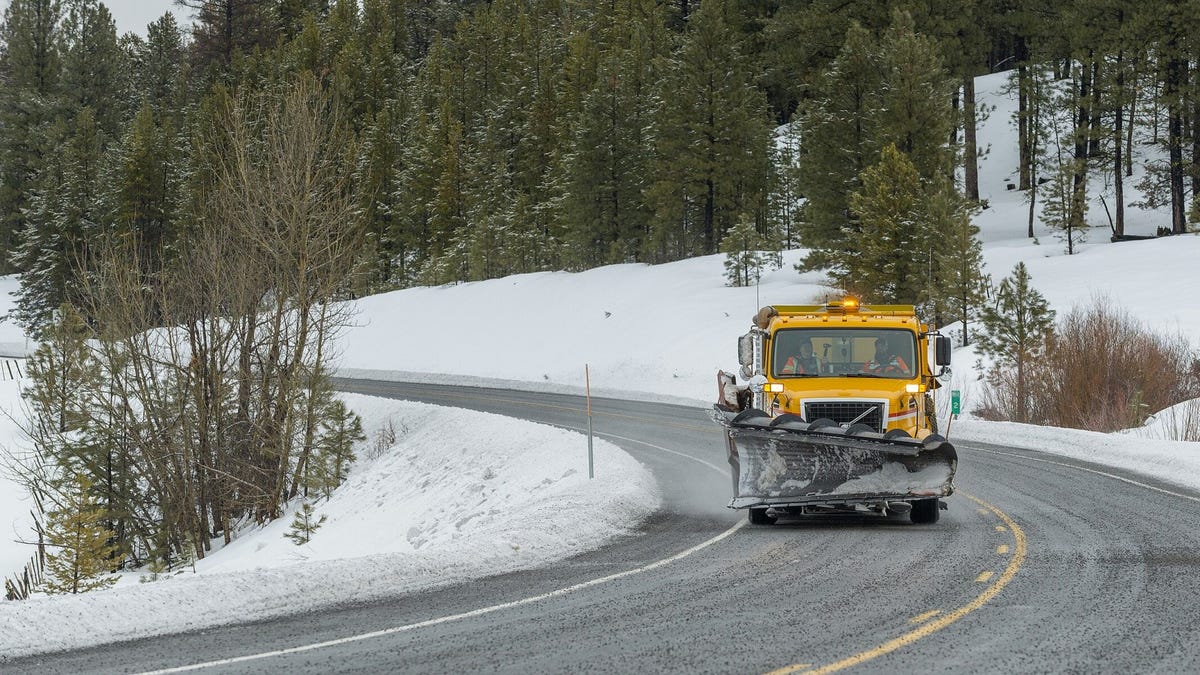Every year, the roads across America are flooded with plows that spray rock salt across our highways to clear ice and snow. And every year, questions are raised about the effectiveness of salt and alternatives that could be out there. Now, there’s a salty solution lurking at the back of your fridge that could help clear our roads: pickle brine.
Spraying rock salt across the road is a double-edged sword, as it clears the path and makes it safe to drive, but also wreaks havoc on the underside of your car and crusts almost everything in a thin white film. Then there’s the cost of the stuff, with America spending around $2.3 billion a year on road salt and its distribution, reports the IWLA.
To try and cut back on those costs, communities in Wisconsin use waste from the cheese industry to clear roads and residents in Canada can even have their roads cleared with beet sugar. Now, the idea of using pickle brine instead of solid salt has been floated, and it could be just as effective as some other road salt alternatives.
Pickle brine and these alternatives work in the same way as salt to clear our roads, in that they lower the freezing point of water. Regular water freezes at 32°F (0°C) while salty water can freeze below 28°F (-2°C) and rock salt can remain an effective way of keeping roads somewhat free of snow and ice, all the way down to 15 degrees (-9°C).
Provided it’s at the right concentration, pickle brine can work down to temperatures as low as -6 Fahrenheit, adds Ninja De-Icer. In order to clear roads, the concentration needs to be around 23 percent salinity for the brine to work. Other modifications would also be needed to switch to brine, including fitting spray nozzles to distribute the liquid brine instead of solid rock salt on trucks.
Those modifications didn’t prove to be much of a hassle for road crews in Bavaria, where trials have taken place to prove the effectiveness of pickle brine to clean roads. Crews in Bavaria partnered with local producer Develey Senf & Feinkost to use up its spent brine, which reportedly saved more than 700 tons of salt and 1.3 million gallons of water, adds local outlet RTL.
Instead of waiting for the authorities to make this switch, we could just all agree to raid our fridges the next time it snows and pour our crusty old pickle brine out onto the street by our house. If we did that, though, it would rather take away the fun of naming the snowplows that clear our streets.

